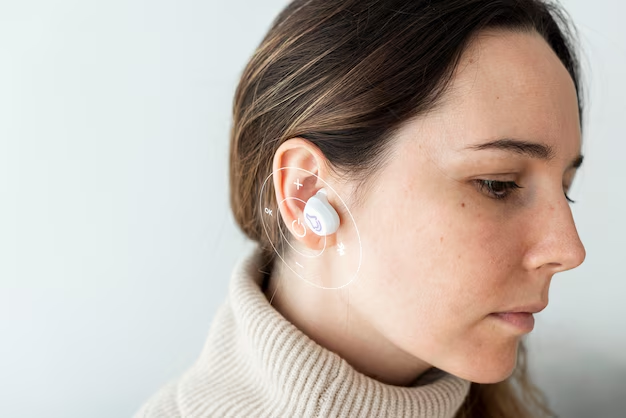Navigating Medicaid Coverage: Do Hearing Aids for Adults Stand a Chance?
Discovering whether Medicaid covers hearing aids for adults can be a crucial step in planning for healthcare needs, especially given the potential impact hearing impairment can have on quality of life. While Medicaid is a vital resource for many Americans, understanding how its coverage applies to specific needs like hearing aids is not always straightforward. The answer to whether Medicaid covers hearing aids isn't a simple "yes" or "no." Various factors play a role, including state-specific policies, types of benefits, and individual circumstances. This guide aims to demystify Medicaid's coverage for hearing aids and provide you with essential insights to tackle the complexities involved.
🎯 Understanding Medicaid and Its Scope
Medicaid is a joint federal and state program that helps with medical costs for individuals with limited income and resources. It provides a wide range of health services based on need and eligibility, varying significantly from state to state.
The Basics of Medicaid
Medicaid is designed to offer support to low-income families, seniors, pregnant women, and people with disabilities. Coverage benefits under Medicaid can include:
- Hospital and doctor visits
- Nursing home care
- Prescription drugs
- Long-term care
Each state administers its own Medicaid program while adhering to federal guidelines, meaning coverage details can differ greatly.
Why Hearing Aids Matter
Hearing loss isn't just an inconvenience; it significantly influences communication, social participation, and overall well-being. For adults, untreated hearing loss can lead to:
- Social isolation
- Cognitive decline
- Increased risk of falls
Given these potential consequences, access to hearing aid devices isn't simply a matter of convenience; it's a health priority.
🔍 Medicaid and Hearing Aids: The Core Query
For adults, the question "Does Medicaid cover hearing aids?" isn't one-size-fits-all. The reality is that while some states provide coverage, others might not or only offer limited help.
State-Specific Policies
Medicaid's approach to hearing aid coverage varies:
- Some States Offer Coverage: A number of states include hearing aids in their Medicaid plans. These states may cover the full cost, or offer partial coverage.
- Age and Diagnosis Requirements: Certain states might have specific requirements regarding age or the severity of hearing impairment before offering coverage.
- Restrictions on the Type of Aid: Sometimes coverage is limited to basic models, excluding advanced technology options like Bluetooth-enabled aids.
Checking your specific state's Medicaid program is essential to understand coverage availability.
Optional Benefits and State Preferences
Hearing aids may fall under 'optional benefits,’ which suggests that each state has discretion in whether to provide this coverage. This option allows Medicaid to adapt to regional needs but requires recipients to actively seek information.
📊 Breaking Down the Process
When attempting to secure Medicaid coverage for hearing aids, understanding the process and knowing where to start can make the path smoother.
Consultation with Audiologists
Before delving into Medicaid specifics, a consultation with an audiologist can:
- Confirm the Necessity: An audiologist will determine if hearing aids are necessary.
- Provide Documentation: They can offer required documentation that may be needed during the Medicaid application process.
- Discuss Options: Audiologists can also advise on the types of hearing aids available and what might work best based on lifestyle and listening requirements.
Navigating the Application
Applying for Medicaid coverage for hearing aids involves:
- Initial Inquiry: Contact your state’s Medicaid office to confirm eligibility and specific coverage policies for your area.
- Documentation Submission: Gather required documents, which might include proof of income, medical need, and identification.
- Await Approval: Coverage approval can take time, so early application is crucial.
Keep all records and communications during this process to ensure accountability.
📋 Practical Takeaways and Tips
Navigating Medicaid and hearing aid coverage doesn't have to be overwhelming. Here are key points to keep in mind:
- ✅ Check Local Regulations: Always check your state's specific guidelines as Medicaid is state-administered.
- ✅ Consult Professionals: Engage with professionals—both audiologists and Medicaid representatives—for guidance specific to your needs.
- ✅ Early Action: Begin inquiries and applications early, given the potential time involved in processing.
- ✅ Explore Alternatives: If Medicaid doesn’t cover hearing aids, options like charities, foundations, or discounted programs might offer viable alternatives.
Here's a quick summary to bookmark:
| Key Step | Details |
|---|---|
| 🗺️ State Regulations | Verify coverage specifics at your local state office |
| 🏥 Professional Consultation | Engage audiologists for necessary evaluations and advice |
| 📨 Application Process | Prepare all necessary documents and submit applications promptly |
| 🚀 Alternative Solutions | Explore other financial aid options if Medicaid coverage is not feasible |
🎁 Empowering Your Health decisions
Understanding if Medicaid covers hearing aids for adults can be critical to managing both health and finances. While the journey involves several steps and checks, knowledge and preparation make it more navigable. Always stay informed of your state-specific rules and advocate for your health needs—because well-informed means well-prepared. By taking proactive steps, you can ensure that you have the best resources to support your hearing health and overall well-being.

Related Topics
- A/r Medicaid
- Am I Eligible For Medicaid
- Am I Qualified For Medicaid
- Are Illegal Aliens Eligible For Medicaid
- Are Illegal Immigrants Eligible For Medicaid
- Are Medicaid Payments Frozen
- Are Medicare And Medicaid Social Insurance
- Are My Children Eligible For Medicaid
- Are Trusts Exempted From Ssi And Medicaid
- Are Undocumented Immigrants Eligible For Medicaid
